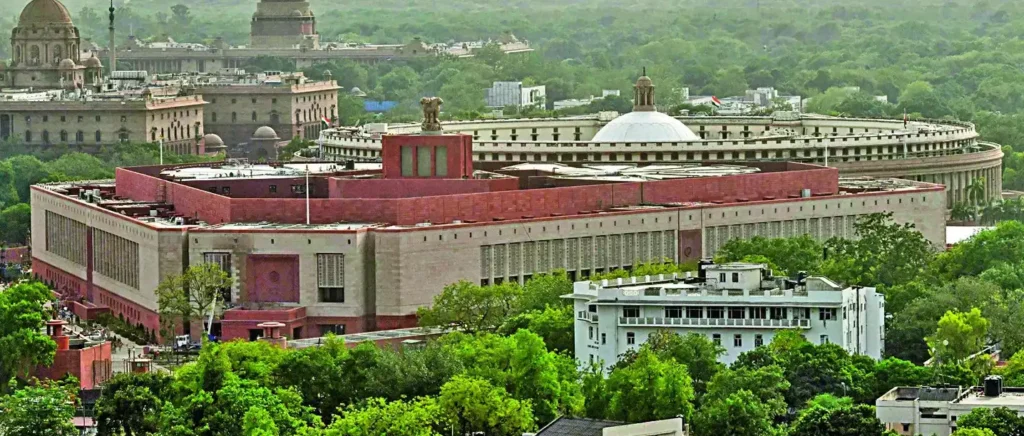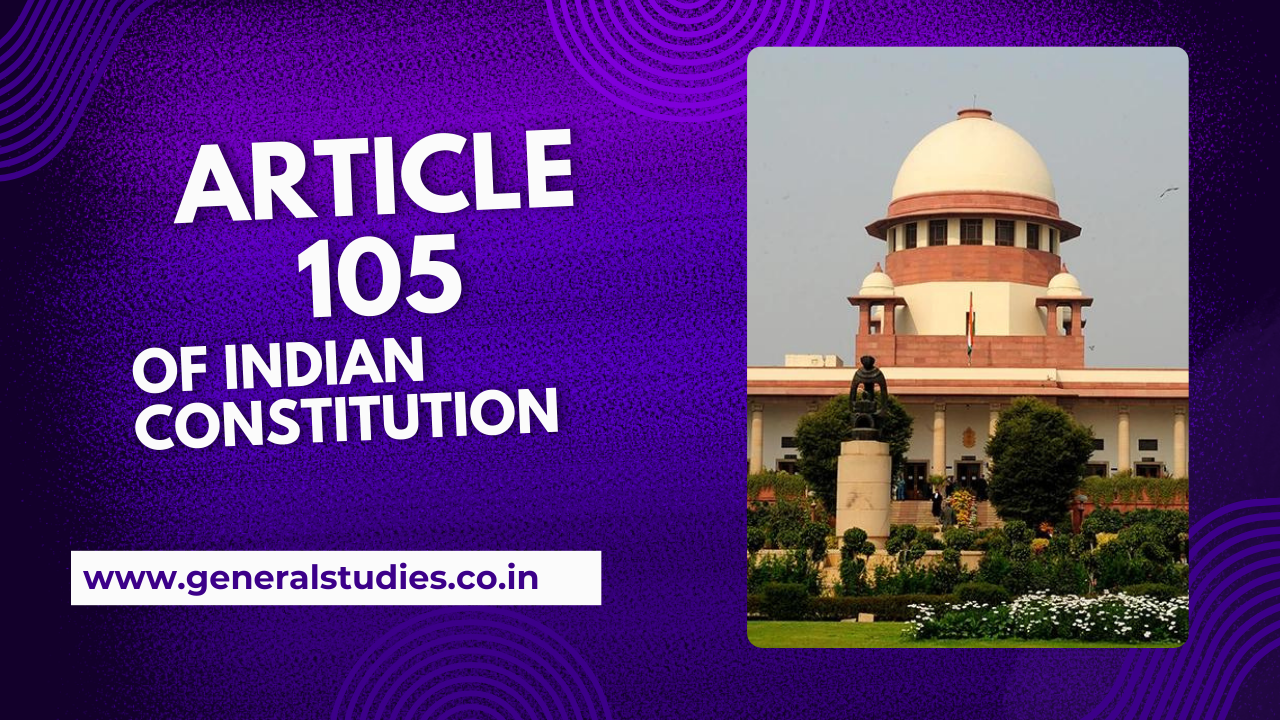Table of Contents
Article 105: Powers, Privileges, and Immunities of Parliament and Its Members
- Freedom of Speech in Parliament:
- Members of Parliament (MPs) can speak freely during parliamentary sessions.
- This freedom is subject to the rules and orders that regulate Parliament’s procedures.
- Protection from Legal Action:
- MPs cannot be sued or prosecuted in court for anything they say or any vote they cast within Parliament or its committees.
- This protection extends to official publications authorized by Parliament, such as reports or documents.
- Defining Powers and Privileges:
- Laws made by Parliament can define the powers, privileges, and immunities of Parliament and its members.
- Until Parliament defines these, they will be the same as those that existed right before the enactment of Section 15 of the Constitution (Forty-fourth Amendment) Act, 1978.
- Application to Non-Members:
- The protections in points 1, 2, and 3 also apply to individuals who have the right to speak or participate in Parliament’s proceedings, even if they are not MPs.

Article 106 of Indian Constitution: Salaries and Allowances of Members of Parliament
- Determination by Law:
- MPs are entitled to receive salaries and allowances as determined by laws made by Parliament.
- Parliament can pass laws specifying the amounts and conditions for these payments.
- Temporary Provisions:
- Until Parliament sets new rates, MPs will receive allowances at the rates and under the conditions that applied to the members of the Constituent Assembly of the Dominion of India right before the Constitution began.
Read More: Officers of the Parliament of India
Summary
- Freedom in Parliament:
- MPs have the freedom to speak and vote without fear of legal consequences.
- This protection ensures they can debate and legislate without external pressure.
- Immunities:
- MPs and those authorized to speak in Parliament are immune from legal action for their parliamentary activities.
- Powers and Privileges:
- The specific powers and privileges of MPs and parliamentary committees can be defined by Parliament.
- Until defined, the historical privileges from before 1978 apply.
- Salaries and Allowances:
- MPs’ pay and benefits are set by laws passed by Parliament.
- In the absence of new laws, they receive what the members of the former Constituent Assembly received before the Constitution was established.

